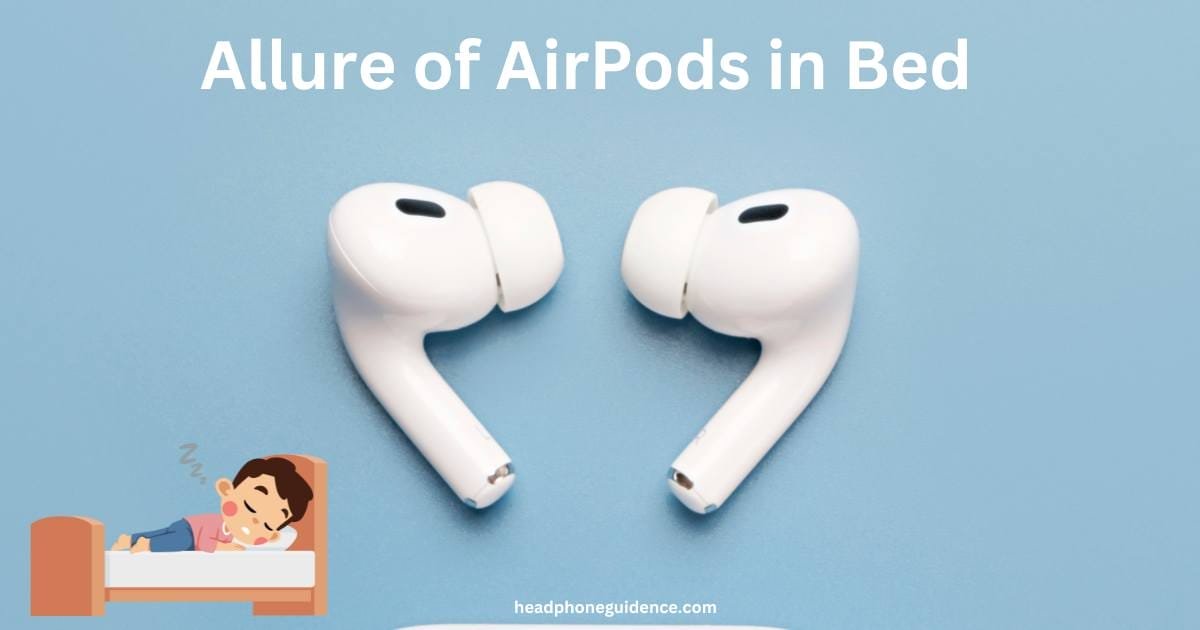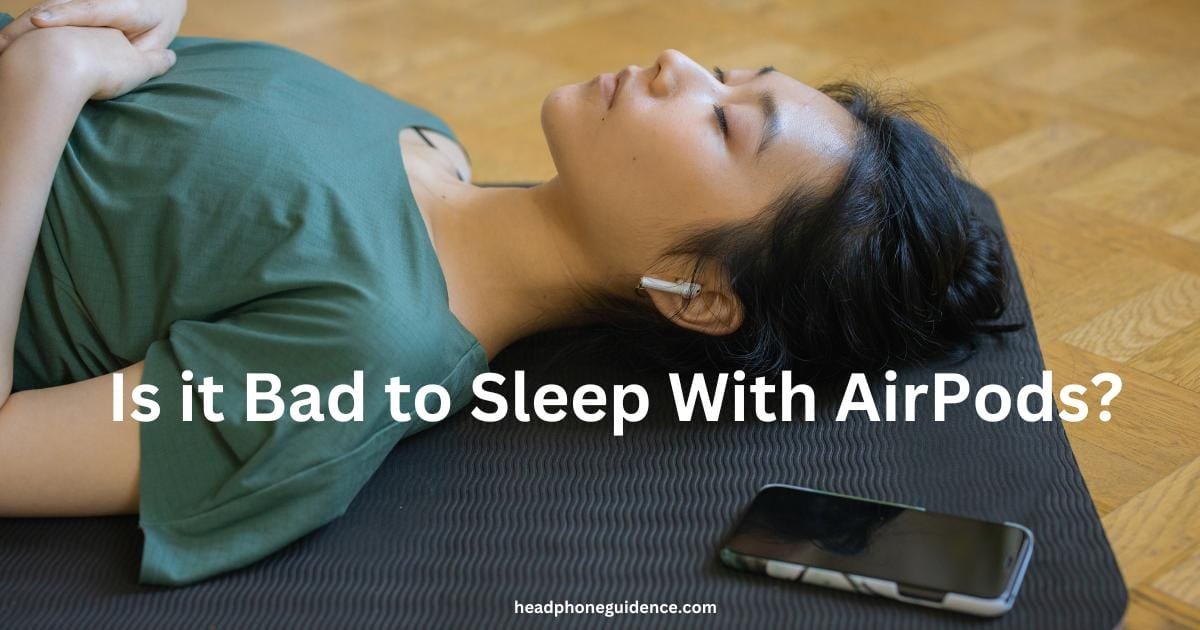Is it Bad to Sleep With AirPods?
Sleeping with AirPods has become an increasingly common practice as people turn to podcasts, music, and ambient sounds to help them drift off to sleep. However, as with any technological habit, it’s worth exploring the potential implications for health, safety, and the overall quality of sleep. In this article, we delve into the multifaceted aspects of sleeping with AirPods, examining the pros and cons, and providing insights from health experts to help you make an informed decision about your bedtime routine.
The Allure of AirPods in Bed
AirPods, Apple’s popular wireless earbuds, offer a convenient and comfortable way to listen to audio content. Unlike traditional headphones, their compact, wire-free design makes them a seemingly perfect companion for the bedroom. They provide a personal soundscape, whether it’s the soothing voice of a meditation guide, the gentle rhythms of calming music, or the immersive world of an audiobook. For many, this can be a gateway to faster and deeper sleep, especially in noisy environments or for those struggling with tinnitus.


The Concerns of Sleeping with AirPods
Despite the convenience, there are several concerns associated with sleeping with AirPods:
Physical Discomfort and Ear Health
Continuous pressure on the ears from lying on AirPods for several hours can lead to discomfort, pain, and even ear infections. Earbuds can push earwax deeper into the ear canal, potentially causing blockages or ear infections. Dr. Jane Doe, an otolaryngologist, advises, “Prolonged use of earbuds during sleep can alter the natural cleaning process of the ear, leading to accumulation and potential infections.”
Battery Life and Radiation Exposure
Leaving AirPods in your ears overnight means they will be working for prolonged periods, which could lead to battery wear over time. Although the amount of radiation emitted by Bluetooth devices like AirPods is significantly lower than that of cell phones, there is still a debate among scientists about the long-term effects of low-level radiation exposure.
Risk of Accidental Injury
There’s also the risk of accidentally swallowing an AirPod while asleep, a scenario that has been reported in the news. While rare, such incidents highlight a potential, albeit extreme, risk associated with wearing small, loose objects in bed.
The Impact on Sleep Quality
The National Sleep Foundation underscores the importance of creating an ideal sleeping environment, which includes minimizing potential disturbances. While AirPods can help mask external noise, they also introduce the possibility of disrupting sleep cycles. If the audio content is too stimulating or if the volume is set too high, it could prevent you from reaching deeper, more restorative stages of sleep.
Expert Recommendations
Experts suggest several guidelines for those who choose to sleep with AirPods:
- Limit Usage: Try not to use AirPods every night. Give your ears time to recover and breathe.
- Volume Control: Keep the volume at a low level to avoid potential hearing damage.
- Hygiene: Regularly clean your AirPods and ears to prevent wax buildup and infections.
- Sleep Timers: Use features like sleep timers to ensure that your device stops playing after you’ve fallen asleep, minimizing unnecessary exposure.
- Alternatives: Consider using a white noise machine or a pillow with built-in speakers as safer alternatives to earbuds.
Personal Anecdotes and Alternatives
Many users report positive experiences sleeping with AirPods, citing improved sleep onset times and reduced nighttime awakenings. Sarah, a long-time user, shares, “I’ve struggled with insomnia for years, and listening to audiobooks at night has made a significant difference. However, I make sure to clean my AirPods regularly and give my ears a break now and then.”
For those concerned about the potential risks, exploring alternatives might be worthwhile. Products like sleep masks with Bluetooth speakers, pillow speakers, or even bone conduction headphones offer a way to listen to the audio content in bed without the direct ear contact associated with AirPods.
The Bottom Line
While sleeping with AirPods can offer a private haven of sound to lull you to sleep, it’s essential to weigh the benefits against potential risks to ear health, safety, and sleep quality. By adopting a mindful approach and considering safer alternatives, you can enjoy your bedtime listening experience without compromising your health or comfort. Ultimately, the key is to listen to your body and make adjustments as needed to ensure a good night’s sleep.







